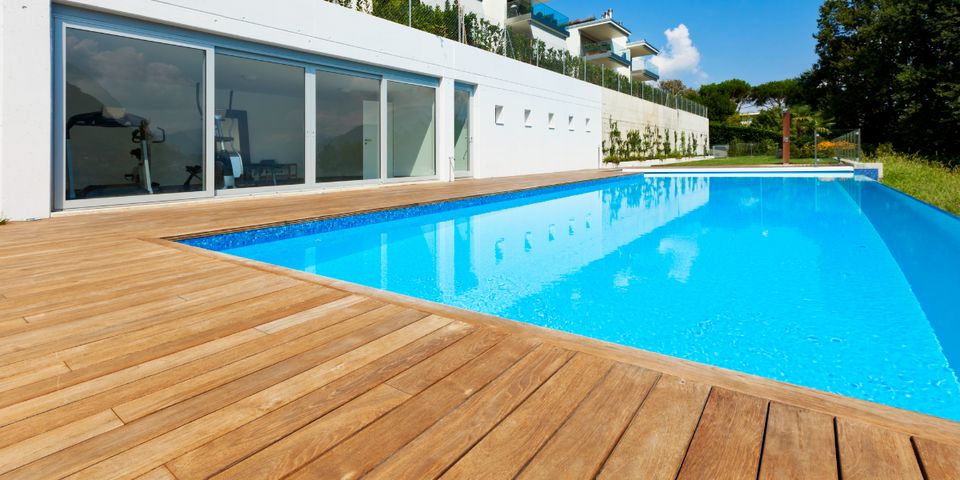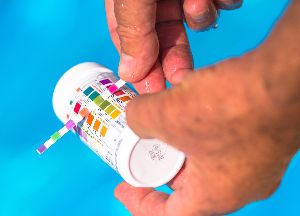
A swimming pool can offer scenic outdoor space for relaxing with family and entertaining guests. Every so often, you might notice calcium deposits, or white and gray buildups, along the perimeter of your oasis. Below, you'll learn more about this type of scaling and how to keep your pool in excellent condition.
A Guide to Swimming Pool Calcium Buildups
How does calcium enter pools?
If your home water supply is hard, it means it contains dissolved minerals, such as calcium. When you fill or replenish your pool water, trace particles in the fluids will enter the feature. Additionally, certain pool chemicals, such as chlorine and shock, often include calcium as an ingredient, so the residue may become apparent when you add the treatment products to the water.
What are the types of buildups?

If calcium binds with other minerals, such as limestone or calcite, it may turn into calcium carbonate or silicate. Calcium silicate buildups are white and flaky, while calcium carbonate deposits are gray and resemble nodules. Both types typically form as a result of pool water evaporation, leaving a line of crystal flakes or bumps along the inner edges. They may also form due to increases in calcium levels caused by elevated water pH.
How can I eliminate them?
Calcium remover products contain muriatic acid. Applying the solution to affected areas and allowing it to sit for half an hour can loosen and lift buildups. You may use a stain eraser tool, which has an abrasive tip, to scrub concrete or tiles until calcium deposits disappear. A pumice stone can assist with removing more stubborn residue. However, since it may leave scratches on concrete or tile, consider leaving more extensive cleaning to a professional pool care company.
What can I do to prevent buildup?
Calcium scaling treatments feature a special formula that dissolves calcium deposits. Adding these products to your swimming pool water once weekly can control calcium levels and reduce the risk of buildups. Using a pool cover may slow the evaporation rate of water to minimize scaling. Additionally, test the water every week or two. If necessary, add muriatic acid or sodium bisulfate as needed to lower the pH, as this may minimize calcium deposits.
If you need help controlling or cleaning calcium buildups, reach out to Don Marcum's Pool Care. They provide swimming pool and hot tub cleaning, maintenance, and repairs to clients throughout Cincinnati, OH. Call (513) 561-7050 to book a pool care appointment, and visit the website to find out how they can keep your swimming pool clean, beautiful, and fully functional.
About the Business
(154 reviews)
Have a question? Ask the experts!
Send your question

